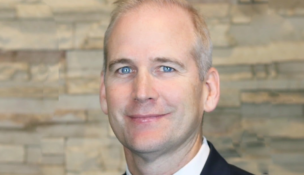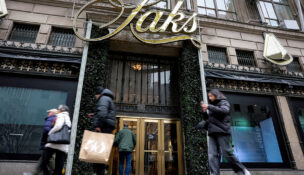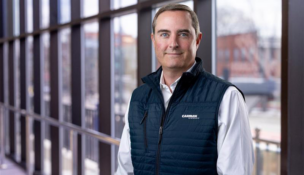U.Va. reaches agreement with DOJ
University will update department quarterly on anti-DEI reforms
Kate Andrews //October 22, 2025//

The University of Virginia Rotunda. Photo by Jay Paul

The University of Virginia Rotunda. Photo by Jay Paul
U.Va. reaches agreement with DOJ
University will update department quarterly on anti-DEI reforms
Kate Andrews //October 22, 2025//
SUMMARY:
- U.S. Department of Justice says U.Va. will deliver quarterly updates on anti-DEI reforms through 2028, in response to what Justice called “unlawful racial discrimination”
- Justice appears to have dropped accusations of antisemitism at U.Va.
- No monetary penalty included in agreement
The U.S. Department of Justice announced Wednesday that it has reached an agreement with the University of Virginia regarding what it called “unlawful racial discrimination” in hiring, admissions and programming — a deal that does not include a monetary penalty but does require U.Va.’s president to provide quarterly reports to the federal government through 2028.
Assistant Attorney General Harmeet K. Dhillon, a U.Va. Law alumna who leads the department’s civil rights division, said in a statement that U.Va. will provide “relevant information and data” to the Department of Justice quarterly through 2028.
“The president of U.Va. will personally certify each quarter that U.Va. is in compliance with the agreement,” the statement says. “The department will pause its pending investigations into the university’s admissions policies and other civil rights concerns. The United States shall treat U.Va. as eligible for future grants and awards. If U.Va. completes its planned reforms prohibiting DEI at the university, the department will close its investigations against U.Va.”
The announcement comes days after U.Va.’s interim president, Paul Mahoney, announced that the university would not sign a compact with the U.S. Department of Education promoted by President Donald Trump to provide favorable treatment in federal funding in exchange for the school agreeing to a set of his administration’s priorities. U.Va. and eight other elite universities were offered the deal, but so far no universities have agreed to the compact.
Critics, including U.Va. faculty members, have said signing the compact would violate academic freedom.
According to U.Va. spokespeople, Mahoney sent a statement to the university community Wednesday after signing an agreement with the Department of Justice that does not include a monetary penalty and no external monitoring, as reported this week by The New York Times.
The text of the four-page agreement was posted on U.Va.’s website. It calls for the following measures:
- U.Va.’s president will send certified quarterly reports to Dhillon through Dec. 31, 2028;
- The agreement is not an admission of guilt; U.Va. “expressly denies liability with respect to the subject matter of the investigation”;
- The May 2 and June 17 investigations into alleged antisemitism and racial discrimination were suspended as of June 26, the day before former President Jim Ryan announced his resignation;
- If the DOJ determines that U.Va. has made “insufficient progress” at any time toward “compliance with the civil rights laws,” the department will notify the university of a 15-day deadline to “make appropriate progress”;
- After the 15 days are up, the Justice Department “may terminate this agreement and may pursue enforcement actions, monetary fines, or grant or funding terminations as appropriate”
- The federal government can bring new reviews or investigations into civil rights law violations under the agreement.
“We intend to continue our thorough review of our practices and policies to ensure that we are complying with all federal laws,” Mahoney wrote in his statement Wednesday. “We will also redouble our commitment to the principles of academic freedom, ideological diversity, free expression, and the unyielding pursuit of ‘truth, wherever it may lead,’ as Thomas Jefferson put it. Through this process, we will do everything we can to assure our community, our partners in state and federal government, and the public that we are worthy of the trust they place in us and the resources they provide us to advance our education, research, and patient care mission.”
Dhillon’s statement Wednesday added that the state’s flagship university has made “progress” in “combating antisemitism and racial bias, and other American universities should be on alert that the Justice Department will ensure that our federal civil rights laws are enforced for every American, without exception.”
“This agreement allows U.Va. to move forward together, upholding the university’s principles and independence while maintaining the essential research partnership with the federal government,” U.Va. Rector Rachel Sheridan said in a statement. “This has been a challenging time for many institutions in higher education, including U.Va. The agreement results from steadfast adherence to the same values that have guided generations of U.Va.’s leaders and that we have honored as stewards of that legacy.”
A conclusion — for now
The agreement appears to conclude an investigation that led to Ryan’s resignation in June, which he said was due to pressure from the Trump administration.
Ryan, who left U.Va.’s presidency in July but is expected to return as a U.Va. School of Law professor after a sabbatical, wrote in an email that he was resigning to protect federal research funding, “hundreds” of university-based jobs and “hundreds of students who could lose financial aid or have their visas withheld.”
Since Trump took office in January, he has threatened to hold back federal funding of private and public universities, which are dependent on public funds for medical and other scientific research, and the Justice and Education departments have launched numerous investigations into universities, claiming that their diversity, equity and inclusion policies have led to discrimination against white, male students and job candidates.
Both federal departments also have wielded accusations that universities have promoted antisemitism and failed to protect Jewish students and staff members amid widespread pro-Palestine protests.
In addition to the DOJ’s investigation into U.Va., George Mason University in Fairfax County has been under significant scrutiny since July, with four DOE and DOJ probes launched that month. Faculty members and others at Mason have said that the Trump administration has tried to drive out President Gregory Washington.
At both universities, faculty groups have criticized both the Trump administration and their own boards of visitors, both of which are made up entirely of appointees by Gov. Glenn Youngkin.
Speaking Tuesday evening, U.Va. associate professor of research, evaluation and policy Walt Heinecke, who previously was president of U.Va.’s chapter of the American Association of University Professors, said that he and others at the university were concerned about the voluntary resolution.
“If this sort of voluntary resolution agreement leads to the same outcomes as the compact would have, there’s going to be a problem,” Heinecke said.
He also said that the board of visitors has “cut out” faculty members in the hiring process for both the next permanent president and its provost, the university’s top academic leader. Former provost Ian Baucom left the university earlier in the year to become president of Middlebury College.
“All these attacks on the University of Virginia, it’s just bad for business and innovation,” Heinecke added. “It’s bad for business, it’s bad for the economy, and it’s got to stop.”
i

















